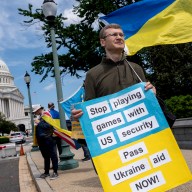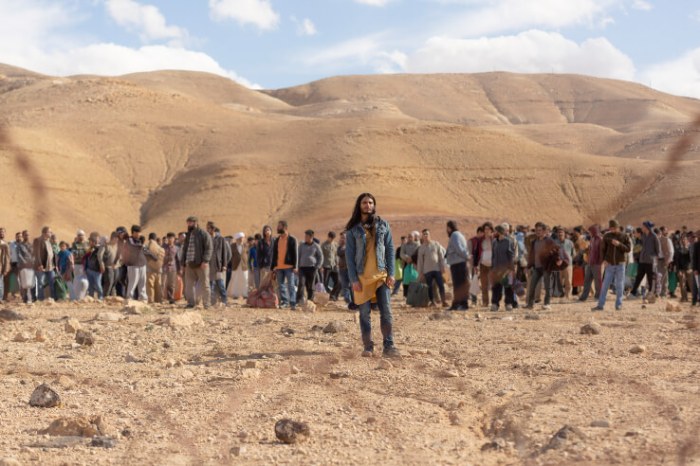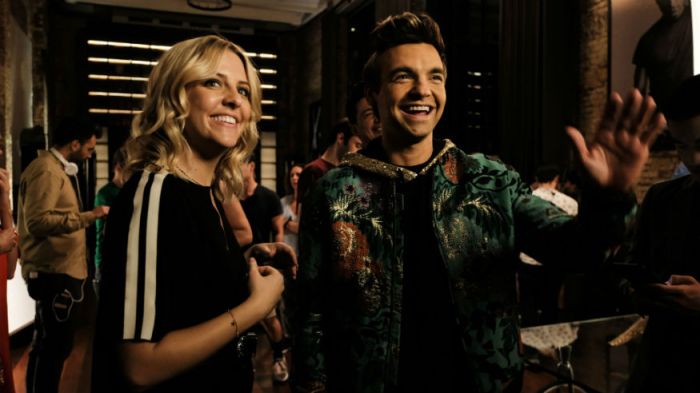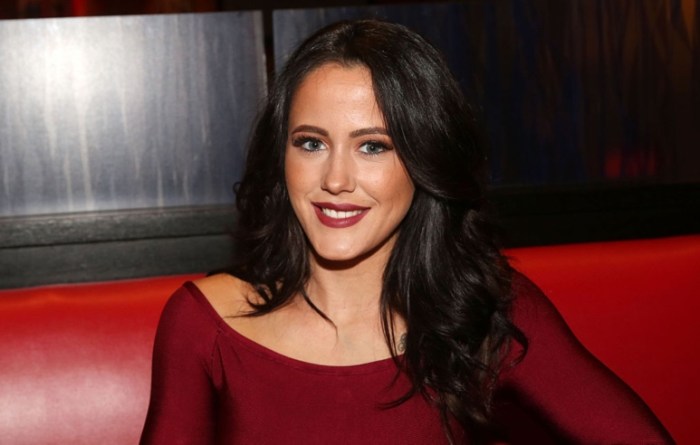When we speak, Ilana Glazer is a New Yorker in Los Angeles. Historically there has been great animosity between the two coastal meccas. But the “Broad City” co-creator — talking to us about a bit part in the Christmas Eve comedy “The Night Before,” with Seth Rogen, Anthony Mackie and Joseph Gordon-Levitt — feels that rivalry is dying away. She even admits to looking forward to being bi-coastal sometime soon, which might come as a shock to fans of her and Abbi Jacobson’s very New York-centric show. Glazer talks to Metro about doing her first big movie and how “Broad City”’s forthcoming third season, premiering February 17, will be slightly different. Los Angeles not only has a more laidback vibe than New York, but it also seems more difficult for the kind of guerilla-ish shooting you do on “Broad City.” You have to do more driving, maybe more planning. That same insane planning, you need to have that in New York too. In L.A. your car is your office, but in New York the city is your office. You’re just out there. There’s equal planning in different ways. In New York, though, after work you can’t run home and change. You have to be a millionaire to not look sweaty and haggard in New York. This is your first big movie. Did you spend a lot of time wandering around, seeing how everything works at that level of production?
Because Abbi and I created “Broad City,” we oversee every single part of it. I know how it all works. I know the different departments. It’s interesting to not be in charge of it — that was the strangest part. It was interesting to not be the one giving all the answers. You learn how you want to do your own stuff and you don’t want to do your own stuff. RELATED: Geek Girl in Hollywood: Here’s to strong and complex heroines You spend most of your scenes with Anthony Mackie. He’s not someone who’s strictly known as a comedic actor. You’ve done that on “Broad City,” like when you had Patricia Clarkson come on for last season’s finale. It was amazing to me when I first met Anthony on set that he hadn’t done comedy, because he’s so funny. There’s that thing about dramatic actors in comedic roles and comedic actors in dramatic roles. I always think that creates something special. Anthony is really funny and really open and really down. Every time I see him I just want to write something for him. And Patty Clarkson, she’s a great dramatic actress but using her in “Broad City” resulted in one of the funniest scenes we ever had. It was a scene that shouldn’t have been funny, but she made it funny. Your character, who wanders around by herself through different parties and bars and steals thing, seems like someone who could only live in New York.
She’s very New York. There were parts in there that didn’t make it in, some exposition. She was a Grinch because she’s Jewish, which cracked me up. She has this big fall off the building [safely onto a pile of garbage bags] — that seemed like someone who’s been in New York for such a long time that she’s like, “I know there’s a trash heap down there. I’ll be fine.” That’s a very New York thing — knowing these little secrets to make it around the city. She had those secrets at every corner. I do want to ask you about “Broad City.” The show is such an institution now. How did that level of awareness affect how you approached Season 3?
With Season 2 we felt like we were finally able to root the characters. Season 1 was such an intro into this intricate world, and Season 2 had the world growing out. Season 3 has been a lovely continuation, going deeper and deeper into the world. It’s a little more real this season. I’m excited about that. There are moments that are real and painful, real and sad. That realness heightens the comedy so much. I’m excited to see how it’s received, not only because I’m proud of it, but because I’m excited to see if people accept that level of sincerity in their “Broad City.” Even with the most comedic characters, if you stick with them for long enough they start to seem real in some ways.
Absolutely. You gain so much trust, then you can be more vulnerable. That’s what Season 3 is going to bring to the table. There’s going to be more vulnerability introduced into its world.
Do you see yourself ever trying full-on drama, not so much with “Broad City” but in other projects?
I mean, I see it. I see it. I’d be interested in trying it. But it would always have to be conceptually funny. It would have to be the right fit. There has to be balance between what I want to pursue and what would make people happy to see. RELATED: Anthony Mackie talks “Shelter,” homelessness and that pro-Trump misquote There’s a lot of serious writing about “Broad City” that says that underneath the jokes there’s a lot of commentary about city life and race and class.
That’s true. It’s both intentional and not intentional. It becomes more true when people write that kind of stuff. It’s not just a completely farcical world. They do live within the real world and have real moments. We can write it and shoot it and edit it, but then the conversation is still going on when it goes out, after it’s aired. It’s collaborative. The audience makes the product too with their responses. I imagine it’s really fascinating for artists to read interpretations of their work that see more in them than their makers may have intended.
It’s a magical feeling. It’s like someone knows you in a way you didn’t know yourself. At other times I meet people on the street who think they know me because of my character. I’m like, “No. You know that’s not really me?” It is and it isn’t. You and Abbi are writing a movie that, interestingly, won’t star either of you. How has that been to write for a different medium and not for yourselves?
The break from writing for myself is really rejuvenating, for both of us. We’re working with Paul Feig and Jessie Henderson [director and producer of “Spy” and the new “Ghostbusters”] as partners, and they give us such amazing notes. It’s a pleasure — it’s a pleasure to get these notes. We’ve learned so much. When you force yourself to write a movie, it’s super hard, because it’s so long. But it is so much fun. This industry is so flexible. You can do that. You can write for someone else. It’s a privilege to jump around in that way.
Ilana Glazer says ‘Broad City’ will be ‘a little more real’ in Season 3
Follow Matt Prigge on Twitter @mattprigge


















